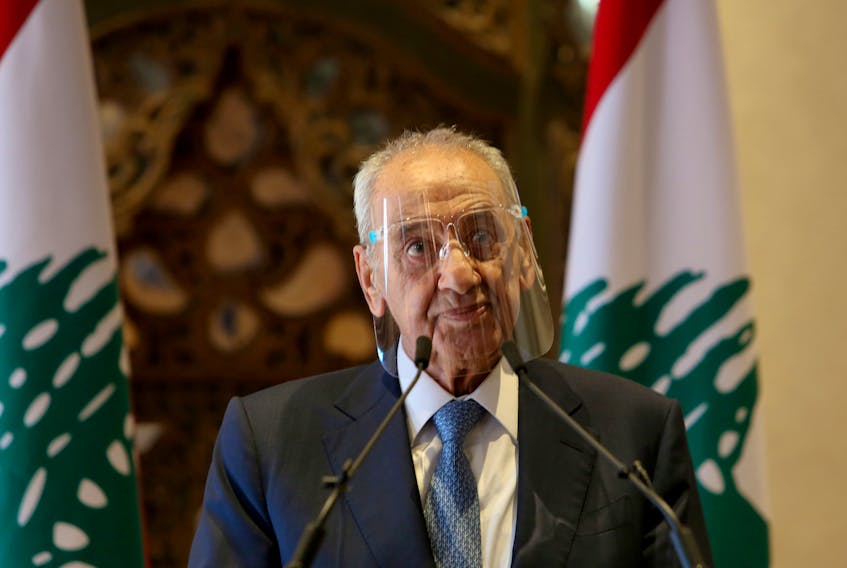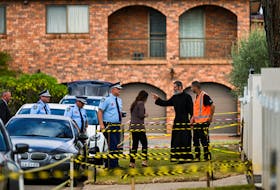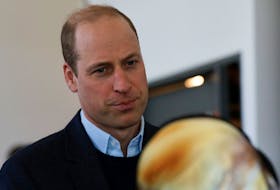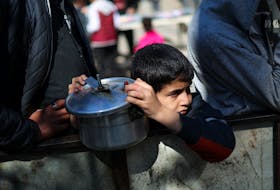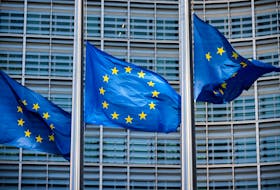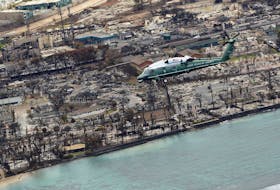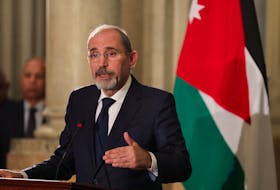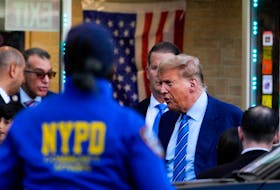By Ellen Francis and Rami Ayyub
BEIRUT/TEL AVIV (Reuters) - Lebanon and Israel have agreed to a framework for U.S.-mediated talks aimed at ending a long-running dispute along the border between the two nations that have fought several conflicts.
Still in a formal state of war, Lebanon and Israel have contested their land and maritime borders for decades, namely over an area in the sea on the edge of three Lebanese offshore energy blocks. Israel said the talks would cover the sea border.
Washington has mediated between the two sides.
"This is a framework agreement, not a final one," Lebanese Parliament Speaker Nabih Berri told reporters, less than a month after the United States imposed sanctions on his top aide for corruption and financially enabling Hezbollah, the Iran-backed Lebanese group which Washington deems a terrorist organisation.
The heavily armed Hezbollah and Israel, sworn enemies, last fought a war in 2006.
The announcement comes with Lebanon facing its worst crisis since its 1975-1990 civil war. The country's financial meltdown was compounded by a massive port explosion that wrecked a swathe of Beirut in August, killing nearly 200 people.
Israeli Energy Minister Yuval Steinitz confirmed the two sides would hold U.S.-brokered talks on the maritime border, a major point of contention.
The U.S. State Department welcomed the agreement and said it had taken three years of diplomacy to achieve.
Talks will begin in the week of Oct. 12, David Schenker, Assistant Secretary of State for Near Eastern Affairs, told reporters in a telephone briefing, adding that he will represent the United States in the negotiations.
It follows deals signed last month, brokered by Washington, between Israel and two Gulf Arab states to normalise relations.
SANCTIONS
Berri, a Hezbollah ally and influential Shi'ite leader in charge of the border file, said talks would be held under the auspices of the United Nations at a U.N. base in Naqoura near the boundary with Israel, known as the Blue Line.
He told a news conference in Beirut that Washington would push for agreement as soon as possible.
Berri mentioned the land and maritime border at the news conference, while Israel and the United States only mentioned the maritime boundary. One reason previous efforts to launch talks floundered was the two sides disagreeing over which frontier to discuss, analysts say.
A Lebanese official source suggested Berri was prompted to make the announcement now because of the economic crisis and U.S. sanctions imposed last month on his right-hand man, Ali Hassan Khalil. A Western diplomat echoed this.
Berri denied being swayed. "I, Berri, cannot be softened by force," he told reporters.
Speaking after the agreement was announced, Schenker, the State Department official, said the United States will continue to impose sanctions on Lebanese individuals allied with Hezbollah or engaged in corruption, adding that further sanctions remained in play.
In 2018, Beirut licensed a group of Italy's Eni, France's Total and Russia's Novatek to carry out Lebanon's first offshore energy exploration in two blocks. One of them, Block 9, contains waters disputed with Israel.
Berri said he had asked French President Emmanuel Macron, who has been at the centre of foreign efforts to help Lebanon out of crisis, to press Total not to delay exploration for gas in the offshore area.
As well as the maritime border row, the two countries disagree over a border wall Israel started building in 2018. A U.N. peacekeeping force monitors the boundary since Israel's military withdrawal from south Lebanon in 2000, ending a 22-year occupation.
(Reporting by Ellen Francis, Samia Nakhoul and Laila Bassam in Beirut; Rami Ayyub in Tel Aviv and Ari Rabinovitch in Jerusalem; Additional reporting by John Irish in Paris and Matt Spetalnick in Washington; Writing by Edmund Blair; Editing by Mark Heinrich and Kirsten Donovan)

